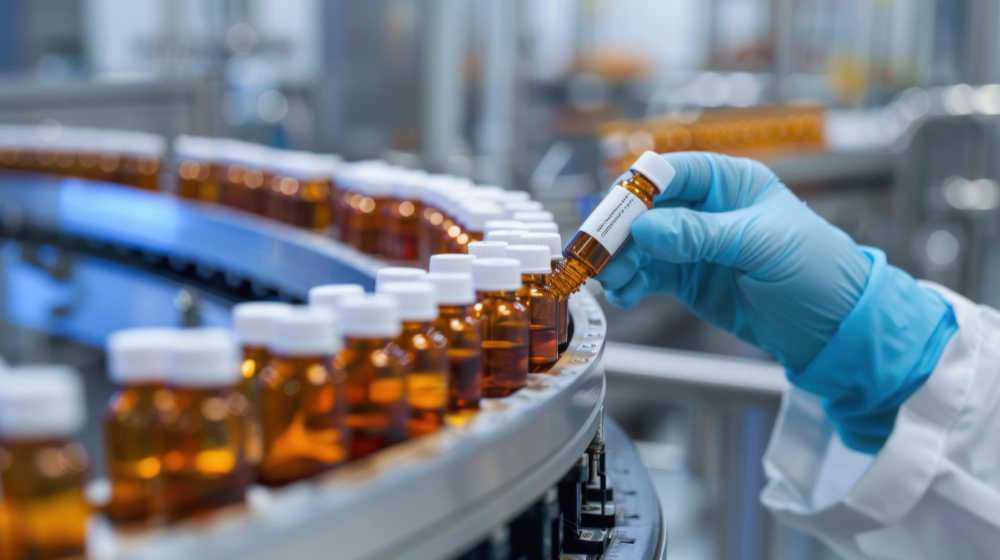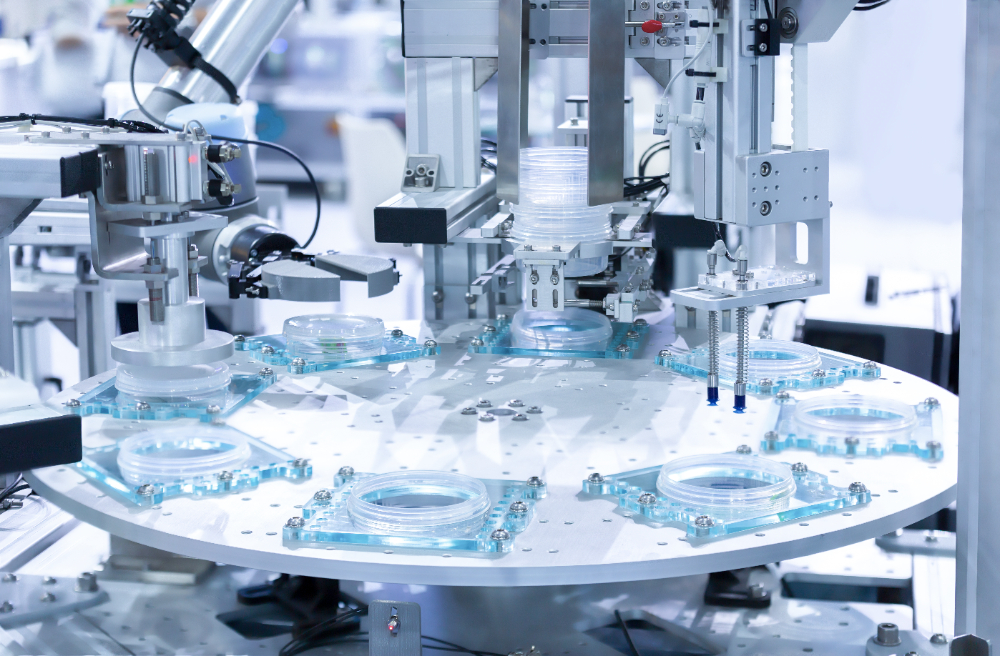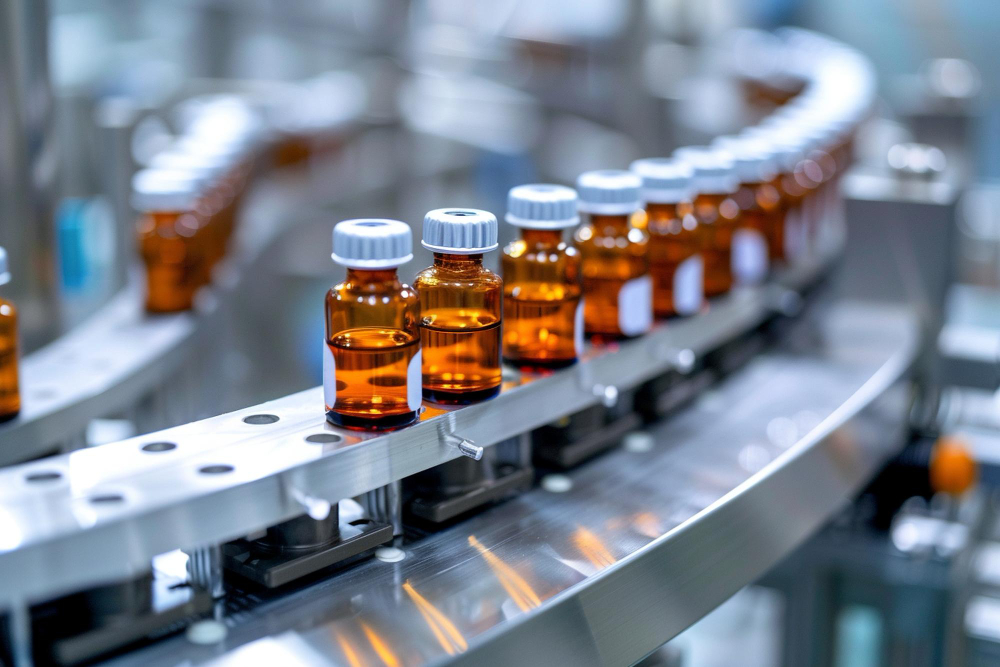Maintaining cleanliness and compliance in the pharmaceutical industry is no small task. Every step in the manufacturing process must meet stringent hygiene standards, and that includes bin washing stations and containers used to handle sensitive materials.
If you’ve ever wondered what these systems are, why they’re important, or how they can benefit your operations, this guide has you covered.
A pharmaceutical bin washing station is a specialized system designed to clean and sanitize bins, containers, and other equipment used in pharmaceutical production. These stations are equipped with automated or semi-automated features to ensure thorough cleaning, removing residues, contaminants, or other unwanted particles that could compromise product quality.
Modern bin wash systems are built with high-grade materials like stainless steel to meet strict GMP (Good Manufacturing Practice) standards. They often come with programmable settings, making them versatile enough to handle different sizes and types of bins with ease. By incorporating advanced cleaning technologies, these stations deliver consistent and reliable results every time.
These stations go beyond basic cleaning. Their automation ensures that even the most hard-to-reach areas of a bin are thoroughly cleaned and sanitized, which is especially important in preventing cross-contamination. Additionally, they are designed to meet various production needs, whether for small-scale operations or large-scale manufacturing.
In pharmaceutical manufacturing, even trace amounts of residue can lead to cross-contamination, product recalls, or regulatory penalties. Washing stations address these concerns by providing an efficient and effective way to maintain hygiene. Here are some key reasons why these systems are indispensable:
They help facilities meet strict hygiene standards set by organizations like the FDA and EMA.
Clean bins ensure that pharmaceutical products remain uncontaminated and safe for consumption.
Automating the cleaning process reduces the time and labor required, allowing staff to focus on other critical tasks.
Proper cleaning minimizes the risk of exposing workers to hazardous residues.
Preventing contamination and maintaining cleanliness helps preserve the company’s reputation for producing high-quality products.
Alt-text: QD Series Bin Washing Station from Canaan
Investing in a bin washing station comes with a host of benefits:
Automated systems can clean multiple bins simultaneously, significantly reducing downtime.
Unlike manual cleaning, a bin wash system ensures uniform results every time, eliminating the risk of human error.
Modern systems are designed to optimize water and energy usage, making them environmentally friendly.
With adjustable settings, these stations can handle various cleaning requirements, from light rinses to deep sanitization.
Automation minimizes the need for manual intervention, freeing up personnel for other tasks.
Regular and thorough cleaning prevents the buildup of residues that could damage bins over time.
Automation significantly reduces the physical strain and risks associated with manual cleaning of heavy bins.
Bin washing stations are versatile and can be used in a wide range of pharmaceutical cleaning applications:
Cleaning bins used to store and transport raw ingredients ensures no contamination occurs between batches.
After housing finished products, bins must be cleaned to avoid any residue from previous contents.
Some washing stations are designed to handle additional equipment like drums, IBCs (Intermediate Bulk Containers), and pallets.
In facilities that handle multiple products, washing stations play a vital role in maintaining product integrity by preventing cross-contamination.
Clean bins contribute to consistent product quality by eliminating leftover material from previous production runs.
In addition to bin washing stations, washing tables are another essential tool in pharmaceutical cleaning. Washing tables are typically used for smaller equipment or manual cleaning tasks. They provide a designated area with built-in features like spray nozzles, drains, and easy-to-clean surfaces.
While washing tables are not as automated as bin washing systems, they are an excellent complement for smaller-scale cleaning needs or as a backup when larger systems are unavailable. Their simplicity makes them a practical choice for quick cleaning tasks that don’t require the full capabilities of a washing station.
Keeping pharmaceutical equipment clean isn’t just about maintaining standards—it’s about ensuring the products’ safety and efficacy. A pharmaceutical bin washing station is an indispensable tool for achieving these goals. By automating the cleaning process, these systems save time, enhance efficiency, and ensure compliance with strict industry regulations.
Ready to optimize your pharmaceutical production? Visit Canaan’s website or contact us to explore our innovative solutions and elevate your processes.
Resources:




Manufacturing pharmaceutical products should always be taken seriously. That is, every process must follow the strictest and highest standards. This is the very reason why manufacturers prefer hiring an EPC contractor. Contractors working under EPC contracts will ensure the outcomes are of the best quality no matter what happens, focusing on the construction of the […]

Explore the importance of EPC contracts in pharmaceutical manufacturing. Learn how EPC works, its benefits, and why choosing an EPC contractor can guarantee project success with Canaan’s industry-leading equipment.

Discover how SCADA and PLC improve automation in the pharmaceutical industry. Learn their roles, benefits, and how Canaan’s advanced technology enhances efficiency and safety.